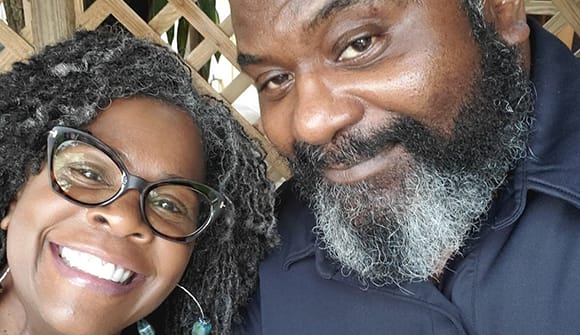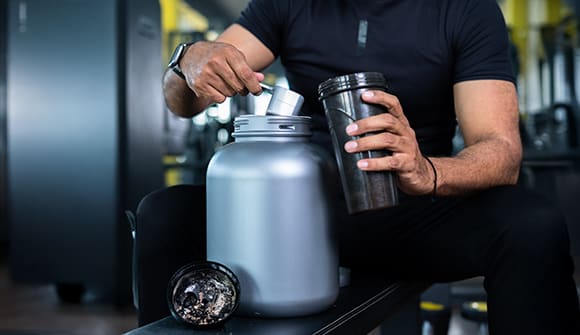A future so bright
Once without hope, man thrives after heart surgery.
Article Date:

When Isiah Owens turned to Baptist Health for help, he couldn’t walk 20 feet without having to stop to catch his breath. The 56-year-old retired police sergeant had experienced heart problems for years without relief.
“I had no quality of life,” Owens said. “I had reached a point where I wasn’t really eating. I basically had given up and was setting things up so my family would be provided for after I was gone.”
He had been receiving treatment for congestive heart failure and atrial fibrillation, but doctors had also determined he had mitral regurgitation, a common heart condition in which the valve between the upper and lower left chambers doesn’t close properly. It causes blood to flow backward through the heart, putting a strain on the organ. Symptoms include fatigue, shortness of breath, heart flutters and swelling in the legs or feet.
Worth the risk
Owens desperately needed surgery but was a high-risk candidate because his heart had stopped during two earlier procedures. A cardiologist from another health system referred Owens to Siddharth Wayangankar, MD, MPH, FACC, a nationally recognized structural interventional cardiologist with Baptist Heart Specialists and director of the Cardiac Catheterization Lab at Baptist Medical Center Jacksonville.
“I’m so thankful my original cardiologist referred me to Dr. Wayangankar,” said Owens. “He knew exactly who I needed to see and didn’t hesitate to make sure I got the care I required.”
By the time Owens met with Dr. Wayangankar, he was distraught because of his worsening quality of life and lack of options. Dr. Wayangankar agreed to perform a minimally invasive mitral valve repair using the MitraClip™ device.
“Other hospitals do these MitraClip procedures, but we really push the limits here at Baptist Health. Our team is capable of handling not just the routine cases, but the more complex ones that other physicians shy away from,” Dr. Wayangankar said.
The minimally invasive procedure involves implanting the device to clip the leaking mitral valve, which decreases the backflow of blood (leak) and allows the heart to pump more efficiently. Because the procedure doesn’t require an incision, patients can be up and moving within a few hours.
Planning for the future
Once without hope, Owens is now looking ahead.
“I just wish I had done it sooner,” he said, explaining that he felt better immediately after surgery. “I feel alive for the first time in a decade.”
Owens has now dipped back into exercising and has cut back on eating red meat and pork. But most importantly, he now sees a future – one that involves spending time with family and traveling with his wife.
“I’m so grateful for the care I received at Baptist Health,” said Owens. “I have my life back. How can you ever really thank someone for that?”
For more information about the Baptist Heart Valve Clinic or the Structural Heart Program, visit baptistjax.com/valve or call 904.202.9500.



